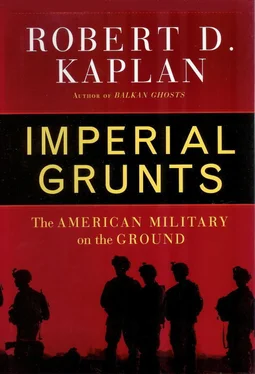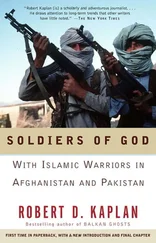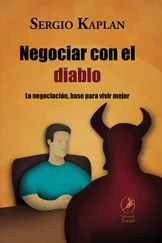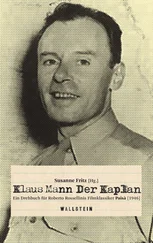Sheikh Abdulkarim bin ali Murshed, forty, looked older than he was: something not uncommon in a country where extreme poverty and a high birthrate literally sped up time. Well over half of the people in Yemen hadn’t been born when I had first visited sixteen years before. From his father, Sheikh Murshed had inherited control of one hundred thousand Khawlan tribesmen who lived east of Sana’a. They were part of the Bakil tribal confederation, the largest in Yemen. The Bakils were less powerful than President Ali Abdullah Saleh’s more cohesive Hashid confederation, which resided along the northern spine of the mountains of the High Yemen. President Saleh’s political rival, Abdullah al-Ahmer, leader of the Islamic Islah (Congregation for Reform) party, was a fellow Hashid, of the al-Ahmer branch. Consequently, the president needed allies from the Bakils to counter some of his own Hashid tribesmen, and Sheikh Murshed was both willing and ambitious for power.
With the blessing of both Saleh and some khawajahs (wealthy white foreigners), including the Americans, Sheikh Murshed had established a nongovernmental organization (NGO) called Human Solidarity. He had business cards and a half-empty office where nothing seemed to be going on. Like the political party system in Yemen, the office was mainly a Westernized facade, behind which lay a vibrant traditional means of power: the tribe.
Adolph introduced me to Sheikh Murshed less than twenty-four hours after I had arrived in Yemen. This was at the start of the three-day Feast of Eid al-Fitr which concluded Ramadan, a time when such a meeting should have been impossible to arrange. But Adolph had a holiday gift for the sheikh: “an American jambiya, ” as he put it with a wide, overbearing smile, as he towered over the sheikh. It was an authentic, foot-long Texas bowie knife in a handsome red case.
Adolph showed me a stack of such bowie knives inside red cases that he had bought for $80 apiece. “I should be able to deduct these on my taxes as a legitimate business expense,” he told me, “but of course I can’t. I’ve given one to the chief of police, and have another for the president’s half brother. In male-dominated tribal societies like Yemen, manliness goes a long way. It’s how you get people to do things for you.” Adolph’s apartment was filled with knives and swords—from West Africa, the Horn, and Yemen.
Sheikh Murshed told me that as a friend of Adolph’s, I would be his guest in the tribal areas. Thus it would cost me nothing for the vehicle, the bodyguards, and the guides I would be lent for my journey. If I wanted to show my appreciation, however, through a donation to his NGO, that was up to me. In other words, the negotiation had begun. The first group of guards with whom he put me in contact wanted $350 a day. I ended up paying $100 a day, plus a donation to the sheikh’s NGO.
Soon after our first meeting, the sheikh invited me to chew ghat at his medieval tower house, perched on a hilltop on the outskirts of Sana’a. The sheikh’s mafraj, upper-story room, was filled with about twenty tribesmen reclining on pillows on the floor. Late-afternoon sunlight fell through the stucco friezes and colored glass windows. The sheikh sat with his Makarov pistol, Kalashnikov assault rifle, and notebook, using a spittoon to rid his mouth of excess ghat leaves and mucus as he listened to supplications. The ghat was stuffed in plastic supermarket bags beside the pile of assault rifles on the machine-made carpets. An antique telephone sat on a chipped wooden stand. It never rang, but the sheikh talked incessantly on his new cell phone. Mounted on the wall beside faded family photographs was a television turned to Al-Jazeera, the all-news Arabic-language station out of Qatar that the Yemenis thought of as provocatively Westernized, even as Americans saw it as hostile to the West.
Arguments raged into the evening over the best way to improve security and living conditions in the troubled desert regions of al-Jawf and Ma’rib. The sheikh listened, not interrupting, but he always had the final word. He heard numerous supplications, including a request to help a man whose brother had been arrested for allegedly stealing funds from the central bank. The idea that a good lawyer and an independent judge would provide justice was not especially considered; only the sheikh, it seemed, could guarantee a fair resolution of the matter. “In Yemen, the kabili [tribal] system is stronger than the government, stronger than Islam even,” one of the supplicants told me. This was the essence of underdevelopment, a situation in which the government bureaucracy works on the basis of family ties and who-you-know, rather than on impersonal laws and principles.
The ghat spurred conversation. If it is chewed properly—the soft stems and leaves bunched into a rear corner of the mouth, resting on the lower teeth until a greenish mucus forms—the plant has an exquisitely subtle effect at once energizing and relaxing, like having five cups of espresso without feeling overwound. Ghat’s effect was creeping. It incited you sexually. It was common for men after the afternoon chew to take a siesta with their wives. A water-intensive crop, ghat was a principal reason for the desertification of the country. Groundwater supplies in Yemen were expected to last no more than a generation or two, while Yemen’s population growth rate of 2.8 percent was among the highest in the Middle East. [7] World Bank estimates.
Ghat, which had no export potential, was increasingly being grown at the expense of cash crops like coffee, further exposing the local economy to catastrophe as underground oil reserves diminished.
———
The next person I saw as soon as I arrived in Yemen, again courtesy of Adolph, was Brig. Gen. Ali Muhsen Saleh al-Ahmer. Gen. Ali Muhsen, half brother to President Saleh (they shared the same mother), was said to be the second most powerful man in Yemen after Saleh himself. Ali Muhsen controlled an armored division that protected the capital. He had the reputation of being a buttoned-down, capable organizer, close to the fundamentalist Islah movement, as well as to gun-running sheikhs and perhaps to some in al-Qaeda, too. It was Ali Muhsen who helped Saleh get support from the radical “Afghan-Arabs” (Yemeni veterans of the Afghan war against the Soviets) when his regime was threatened by civil war in the mid-1990s. But American pressure following September 11, 2001, had been so severe that both Ali Muhsen and Saleh felt they had no choice but to accommodate President George W. Bush. The Americans made a deal with this former “bad guy”: giving Ali Muhsen’s regiment a chunk of the American military aid package was the only way that Washington could do business in Yemen.
Ali Muhsen reminded me of a tribal leader that a young Winston Churchill describes in his first book, The Story of the Malakand Field Force: “He was a great man, which on the frontier means that he was a great murderer…. A strong man who has felt the grip” of an imperial power “is the best tool to work with.” 2It was Ali Muhsen’s ties to the radicals that gave his half brother, the president, the political protection he needed to move closer to the Americans—temporarily, that is. And also to distance himself from the Americans swiftly and credibly if that, too, became necessary.
Late at night during Eid al-Fitr Ali Muhsen received Adolph and me in his heavily fortified compound in Sana’a. The flamboyant jambiya that Ali Muhsen wore over his tribal dress testified to the value of its lineage; it had likely been passed down for generations. Syrupy tea, nuts, and raisins were served. Adolph presented Ali Muhsen with a bowie knife, “a gift from one soldier to another.” Ali Muhsen smiled as he put his hand gratefully on Adolph’s. For Adolph in this situation, being a former U.S. Army officer was more important than being a U.N. security officer. But the two functions were really inseparable. For sensitive security details like Yemen, where expatriates were truly at risk, it was not unusual for the U.N. to have Americans, or at least other Anglos, in positions of authority. While the United States and the United Nations often seemed at odds on the world stage, on the ground in Yemen the distance between them seemed less consequential.
Читать дальше












